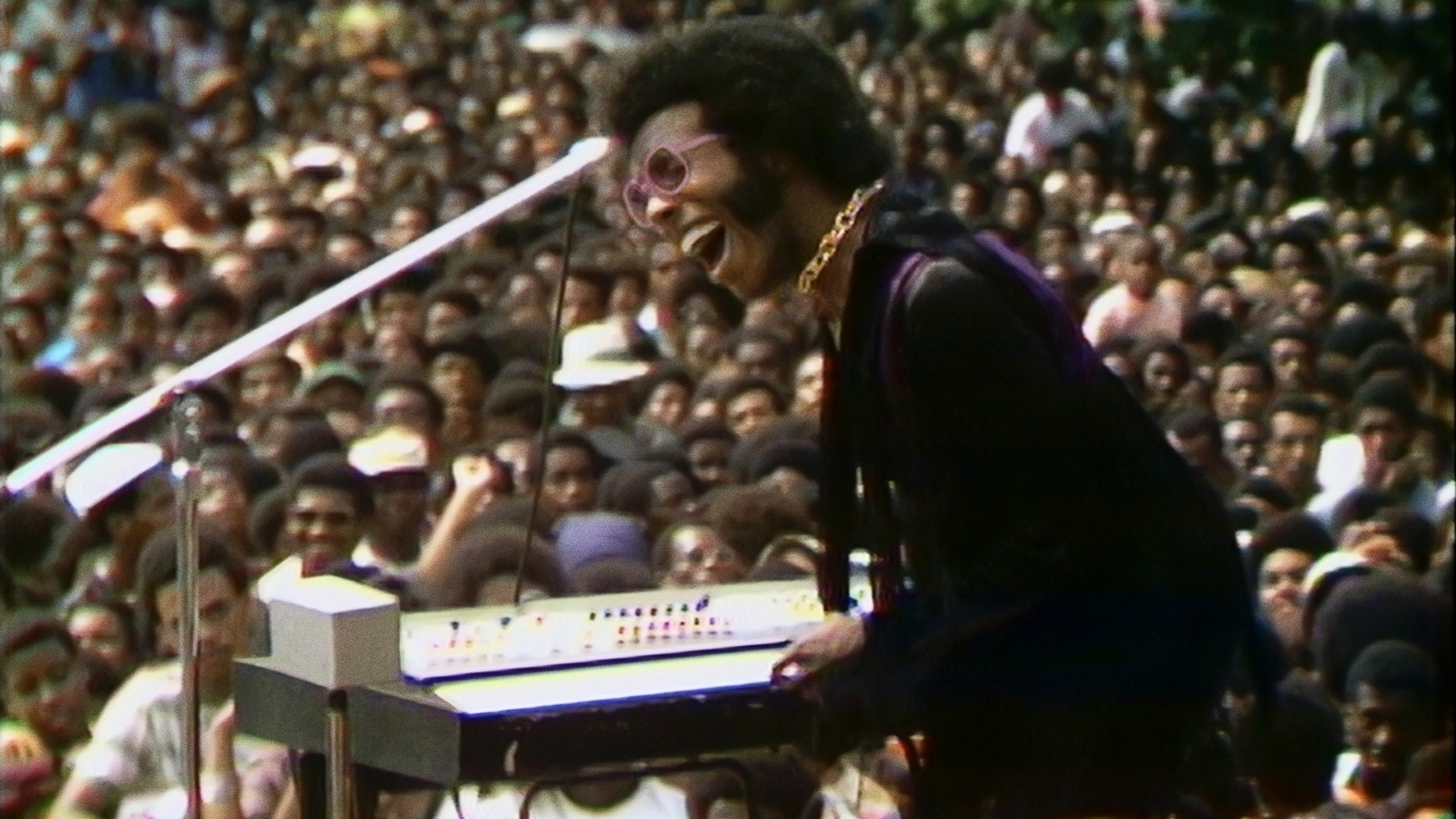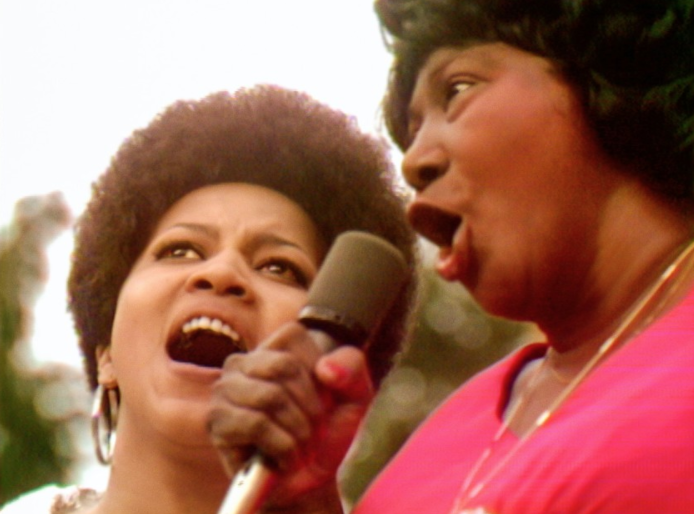
1969 is remembered for many events, among them Woodstock. But that same year another concert event just as momentous took place in New York City, The Harlem Cultural Festival. It had a killer set of performers - Stevie Wonder, Nina Simone, Sly & The Family Stone to name just a few. Yet until a few days ago I bet you didn't even know it had happened. I certainly didn’t until I saw Summer of Soul (...Or When The Revolution Could No Be Televised), Ahmir “Questlove” Thompson’s joyous documentary which premiered on the opening night of Sundance 2021.
A good music documentary needs good music and Summer of Soul has that in spades...
Thompson found a treasure in the unreleased footage that was shot more than 50 years ago and never seen until now. For long stretches of time he just lets the artists sing uninterrupted, taking their time. And what fantastic time that is. Mahalia Jackson and Mavis Staples riffing on uplifting gospel songs. A 20 year old Stevie Wonder showing the promise of genius. And most of all Nina Simone preparing the Harlem crowd of Black and Brown people for the revolution that’s coming. That’s always coming. At every moment in the film you are living in what transpired in the summer of 1969 in New York, yet also what happened in the summer of 2020 all over this country. As mentioned in the fim, 1969 was the year the word “negro” changed in the lexicon to “Black” because Black people demanded it, proud of being called Black. Yet everything else has not changed. The struggle lives on.
 Mavis Staples and Mahalia Jackson in "Summer of Soul"
Mavis Staples and Mahalia Jackson in "Summer of Soul"
If this was not an event for Black people by Black people it would not have been erased from history. Summer of Soul unearthes that story, finally making it available for everyone to revel in and enjoy. Then Thompson goes further by telling the story of Black art and music through the artists who participated in the festival. Who they were in 1969, how they got to be at the festival and what has happened to them since. It’s cathartic to watch Marilyn McCoo and Billy Davis Jr. former members of the group The 5th Dimension watch footage of their younger selves and tell the story of how they came to sing ‘Aquarius” from the musical Hair on that day in Harlem. And that’s just one example. Gladys Knight and the aforementioned Mavis Staples - among many others - offer testimonials too. And then there are the people of Harlem who attended, telling us of the atmosphere, of the fashion and the feeling in the crowd more than 50 years ago.
The archival footage is king. Yet the blend of history and enthralling musical performances is what makes this documentary special. It all makes for a strong and compelling directorial debut for Thompson, formerly known for his music and DJ-ing. Now he’s an assured documentarian.
For more of Murtada’s recent work click here.